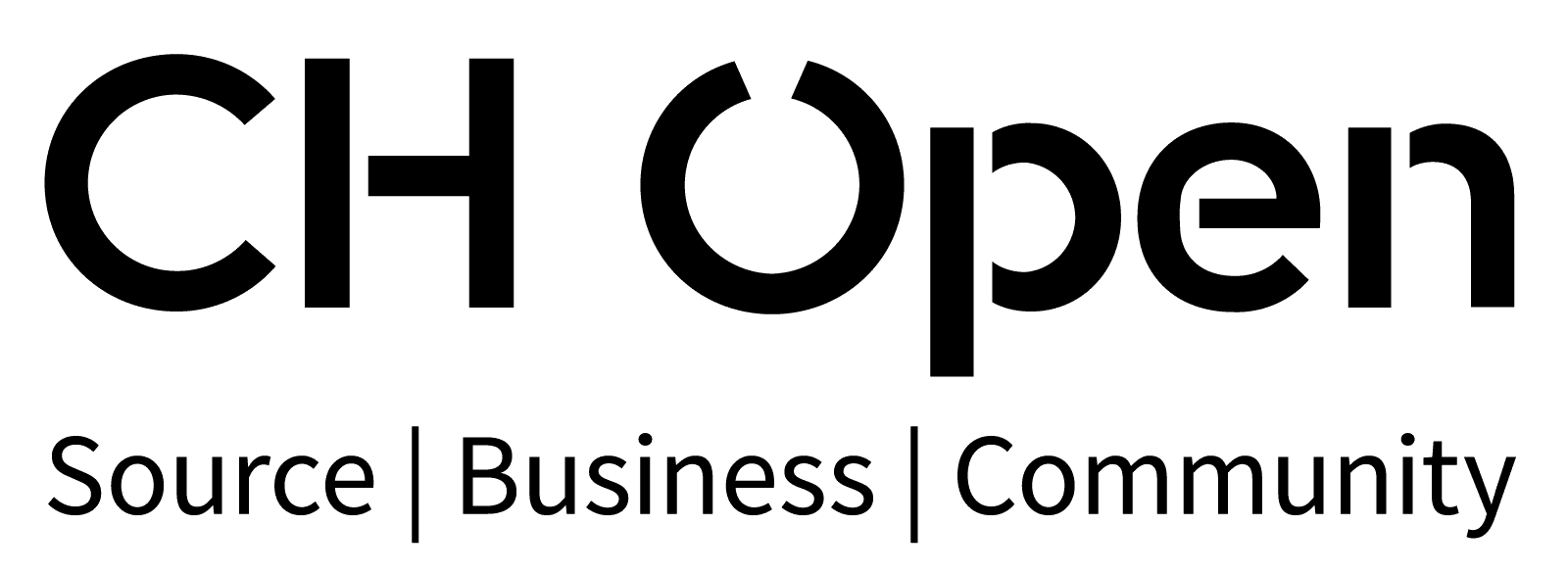ARCHIV CH OPEN BUSINESS LUNCH 2020
10.12.2020 remote: Open Standards and Open Source at IBM
About the talk:
IBM is not only the company with the highest number of patents filed in the US since the last 27 years, it is also extremely active in making its portfolio freely accessible, for instance in the most recent Open COVID Pledge. Open source is also in the DNA of IBM. Long before the 2019 acquisition of Red Hat, a global leader in open source technology, IBM helped establish The Linux Foundation, The Apache Software Foundation and Eclipse Foundation. This underlines the strong open innovation focus at IBM, which I’ll cover in this talk by reviewing key aspects of successful and dependable open source communities, as well as critical considerations for embracing open source, based on our collective experience. I’ll illustrate with examples stemming from the IBM Research community, such as the open-source Qiskit quantum computing framework, and the brand new IBM Analog Hardware Acceleration Kit, a python toolkit for exploring and using the capabilities of in-memory computing devices in the context of artificial intelligence.
About the speaker:
Robert Haas leads one of the technical research departments at IBM Research Europe based in Zurich. His department delivers critical system hardware and software innovation that powers the cloud, AI, server and storage platforms of IBM, as well as leads the race towards in-memory computing. He has an M.Sc. in Communications Systems from EPFL and the Eurécom Institute (Sophia-Antipolis, France), a Ph.D. from ETHZ, and an MBA from Warwick Business School (UK). He has contributed to over 60 patents and several open standards in networking and security.
Please find the session and slides on our youtube-channel.
01.12.2020 remote: CERN Open Hardware Licence
About the talk:
CERN, the European Laboratory for Particle Physics, updated the CERN Open Hardware Licence (https://cern.ch/cernohl) this year. This new version maintains the original goal of providing a sound legal basis for the sharing of hardware designs, while bringing in numerous improvements.
Javier is one the authors of the licence. He will introduce licensing, open-source and the challenges related to licensing of open-source hardware designs, along with the solutions provided by version 2 of the CERN OHL.
About the speaker:
Javier is an electronics engineer and a physicist leading the Hardware and Timing section in CERN’s Accelerator Controls Group. He is the initiator of the Open Hardware Repository (ohwr.org) and co-author of the CERN Open Hardware Licence. At CERN, he specialises in timing systems, and he leads the White Rabbit project, an extension of IEEE-1588 which allows sub-nanosecond synchronisation in highly-distributed controls and data acquisition systems. He also enjoys outreach activities such as guiding visitors at CERN, teaching groups of students or telling others about Open (Science | Data | Access | Software | Hardware).
Please find the session and slides on our youtube-channel.
26.11.2020 remote: Das Innovationspotential von OpenStreetMap und Wikidata/Wikipedia/Wikimedia Commons
Die vier crowdsourced Open Data-Projekte OpenStreetMap, Wikidata, Wikipedia und Wikimedia Commons (Fotos) sind je für sich alleine schon eine Goldgrube für Datenanalysen.
OpenStreetMap (OSM) ist beispielsweise eine Geodatenbank mit über 1000 Points-of-Interests aus denen u.a. thematische Karten erstellt werden können. Dazu kommen Routing- und Gecoding-Services.
Das Innovationspotential für innovative Projekte wird noch grösser, wenn man diese kombiniert.
Wir stellen dieses "Quartett" kurz vor und zeigen am Beispiel der Burgen-Dossier-Karte, wie man sie verknüpfen kann. Dabei wird auch gezeigt, was technisch hinter der interaktiven Wekarte für Technologien stecken. Diese sind mehrheitlich Open Source und enthalten u.a. Performance-Tricks, die bisher noch nirgends vorgestellt wurden.
Referent: Prof. Stefan Keller, Geometa Lab, HSR Hochschule für Technik Rapperswil,
Stefan Keller ist Full Professor an der HSR Hochschule für Technik Rapperswil. Er leitet das Geometa Lab und unterrichtet Data Engineering (Datenbanksysteme) und Data Analytics sowie Geoinformationssysteme. Stefan Keller hat an der Universität Zürich Geographie und Informatik studiert und arbeitete früher u.a. bei Credit Suisse im ersten Usability Lab und bei Unisys in der GIS-Software-Entwicklung. Er ist engagiert im Bereich (Geo) Data Engineering und Analytics wie auch in (Open) Data Management und ist beteiligt an einigen innovativen Open Source- und Open Data-Projekten. Stefan Keller ist u.a. Mitglied bei der Swiss PostgreSQL Users Group, bei der Schweizerischen Gesellschaft für Kartografie, und bei der Swiss OpenStreetMap Association.
Die Folien finden Sie hier. Die Aufzeichnung auf unserem Youtube-Kanal.
14.08.2020 BS: Darf der Staat eigene Software unter eine Open Source Lizenz stellen? Und Swiss Covid-App.
Aus dem Inhalt:
- Kritik an der Wirtschaft an der OSS-Lizenzierung von Software durch den Staat
- Vorstellung des Ergänzungsgutachtens zur Frage, ob eine solche Lizenzierung zulässig ist
- Wozu gibt der Staat Software als OSS frei?
- Wesentliche Punkte der Untersuchung aus rechtlicher Sicht: Legalitätsprinzip und Wirtschaftsfreiheit
- Ergebnisse: Wann ist eine Freigabe zulässig?
- Neu: IT-Strategie des Bundes und Open Source Software
- Verbindliche Ausgestaltung als Open Source Software bei der SwissCovid-App
Speaker: Prof. Dr. Simon Schlauri, Rechtsanwalt, spezialisiert auf IT-Recht. Ronzani und Schlauri Anwälte.
Die ganze Session inklusive Folien finden Sie auf unserem YouTube-Kanal.
20.02.2020 BS: The elephant in the Enterprise
PostgreSQL made it's way into almost all enterprises, from small to medium, from medium to large and very large. Everybody is talking about PostgreSQL today, but most people do not know how that PostgreSQL thing is really working. A community project is totally different from a closed source project that is driven by marketing and customers. In this talk we will look at how the PostgreSQL community works and how PostgreSQL is developed and tested. Once that is clear we will move on and have a look at what enterprise PostgreSQL provides and finally we will take a look at some best practices for PostgreSQL deployments.
Speaker: Daniel Westermann - Principal Consultant and Technology Leader Open Infrastructure at dbi services
Die Folien finden Sie hier. Die ganze Session finden Sie auf unserem YouTube-Kanal.
